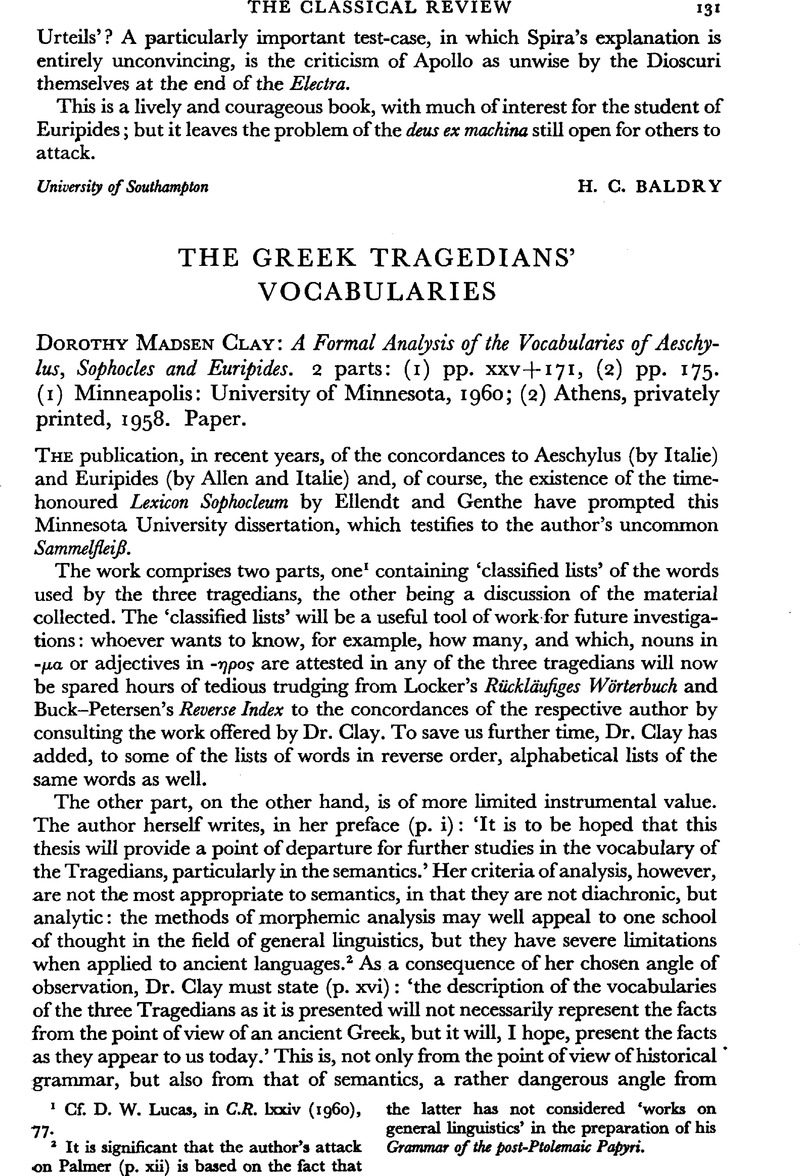No CrossRef data available.
Article contents
The Greek Tragedians' Vocabularies - Dorothy Madsen Clay: A Formal Analysis of the Vocabularies of Aeschylus, Sophocles and Euripides. 2 parts: (1) pp. xxv+171, (2) pp. 175. (1) Minneapolis: University of Minnesota, 1960; (2) Athens, privately printed, 1958. Paper.
Published online by Cambridge University Press: 27 February 2009
Abstract

- Type
- Reviews
- Information
- Copyright
- Copyright © The Classical Association 1962
References
page 131 note 1 Cf. Lucas, D. W., in C.R. lxxiv (1960), 77Google Scholar.
page 131 note 2 It is significant that the author's attack on Palmer (p. xii) is based on the fact that the latter has not considered ‘works on general linguistics’ in the preparation of his Grammar of the post-Ptolemaic Papyri.
page 132 note 1 Or, of course, what was believed to be a suffix: cf. Debrunner, Griech. Wortbildungslehre, esp. § 20.
page 132 note 2 Indeed I cannot visualize a non-historical treatment of Greek proper names at all: Opthe author does not even mention Bechtel.
page 132 note 3 What useful results can be obtained by applying modern linguistic methods of suffixal research to coinages produced by ancient authors, whilst not failing to take into account historical factors, is shown, for example, by such works as Rebmann, O., Die sprachlichen Neuenmgen in den Kynegetika Opthe pians von Apamea (diss. Basel, 1918)Google Scholar, or Limberger, G., Die Nominalbildung bei Polybios (diss. Stuttgart, 1923)Google Scholar.


